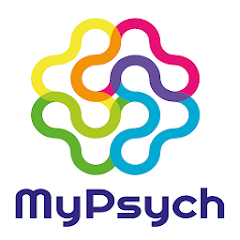History Taking & Mental State Examination

Psychiatric History
The history should be given, as much as possible, in the patient’s own words. Do not use jargon unless the patient does! You can show off your knowledge of how to label symptoms accurately when presenting the Mental State. If the patient experiences auditory hallucinations, give a verbatim quote of what is heard.
Introduction: (name, age, marital status, occupation, known previous contact, reason for referral)
Presenting Problem(s)
History of presenting problem(s)
Onset, course, other help sought, response to treatment so far
Symptom details
Precipitating events a) for illness; b) for seeking help
Family history
Family details (parents, siblings, ages)
Relationship with family members
Family history of psychiatric illness
Personal history
Pregnancy & birth
Early life – developmental milestones, memory of difficulties within family
Schooling – educational achievement, ability to form friendships
Occupational history
Sexual/relationship history (ask details appropriate to interview)
Serious life events
Present circumstances – current relationship, children, work, finances, recent stresses
Past psychiatric & medical history (including current medications)
Previous admissions
Admissions under the Mental Health Act
Previous treatment (medication or psychological)
Personality before illness (may require informant)
Current and past drug/alcohol use
if evidence of problem then detail:
- a) quantity, timing etc
- b) evidence of dependence
- c) harmful consequences of use
Mental State Examination
Remember – the mental state should take into account not just your observations during the course of the interview but also information obtained on symptoms and signs during the course of this episode of illness. If there is evidence of disorder of thought form you should give examples of speech to demonstrate this.
Appearance and behaviour
General description
Self-care
Rapport and eye contact
Activity/retardation, pre-occupation/attentiveness, irritability etc
Mood
Euthymic, elated, depressed, labile, incongruous, blunted
Speech
Rate, rhythm, volume, tone
Disorders of thought form (continuity of thought as reflected in speech/writing)
- acceleration/retardation
- circumstantiality/loosening of association
- perseveration
- neologisms
- word salad
Disorders of thought content
Pre-occupations (including suicidal ideation)
Overvalued ideas (including ideas of reference)
Obsessions/phobias
Delusions (including disorders of the possession of thought)
- primary, secondary
- disorders of the possession of thought (thought insertion, thought withdrawal, thought broadcasting
Disorders of perception
Derealisation/depersonalisation
Illusions
Hallucinations
Cognitive assessment
Orientation
Attention and concentration
Memory
Intelligence and general knowledge
Insight/judgement
Insight
What does the patient think is the explanation for their problems?What is their attitude to treatment/ supervision/ staying in hospital?